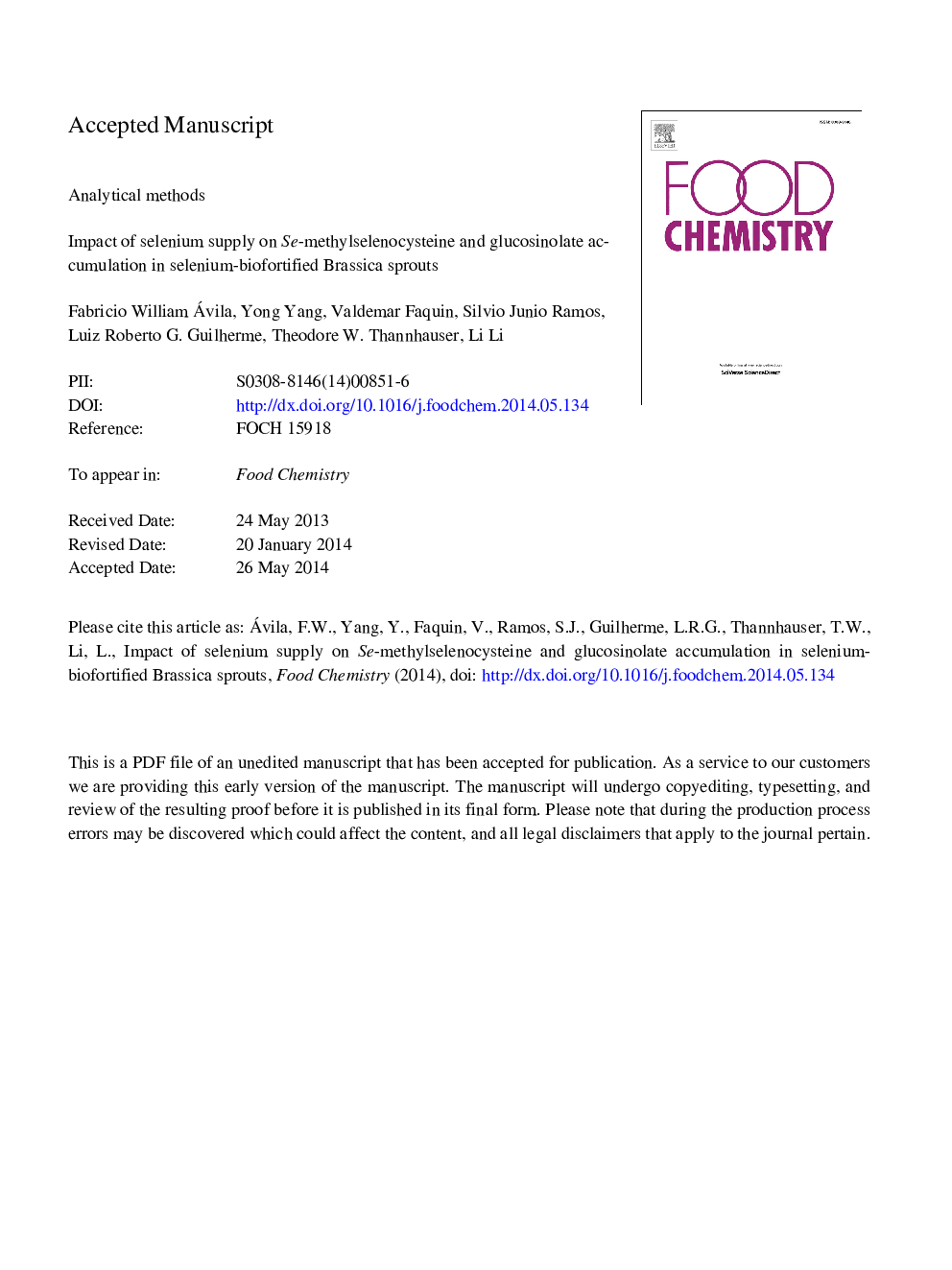| Article ID | Journal | Published Year | Pages | File Type |
|---|---|---|---|---|
| 7596295 | Food Chemistry | 2014 | 33 Pages |
Abstract
Brassica sprouts are widely marketed as functional foods. Here we examined the effects of Se treatment on the accumulation of anticancer compound Se-methylselenocysteine (SeMSCys) and glucosinolates in Brassica sprouts. Cultivars from the six most extensively consumed Brassica vegetables (broccoli, cauliflower, green cabbage, Chinese cabbage, kale, and Brussels sprouts) were used. We found that Se-biofortified Brassica sprouts all were able to synthesize significant amounts of SeMSCys. Analysis of glucosinolate profiles revealed that each Brassica crop accumulated different types and amounts of glucosinolates. Cauliflower sprouts had high total glucosinolate content. Broccoli sprouts contained high levels of glucoraphanin, a precursor for potent anticancer compound. Although studies have reported an inverse relationship between accumulation of Se and glucosinolates in mature Brassica plants, Se supply generally did not affect glucosinolate accumulation in Brassica sprouts. Thus, Brassica vegetable sprouts can be biofortified with Se for the accumulation of SeMSCys without negative effects on chemopreventive glucosinolate contents.
Related Topics
Physical Sciences and Engineering
Chemistry
Analytical Chemistry
Authors
Fabricio William Ávila, Yong Yang, Valdemar Faquin, Silvio Junio Ramos, Luiz Roberto G. Guilherme, Theodore W. Thannhauser, Li Li,
